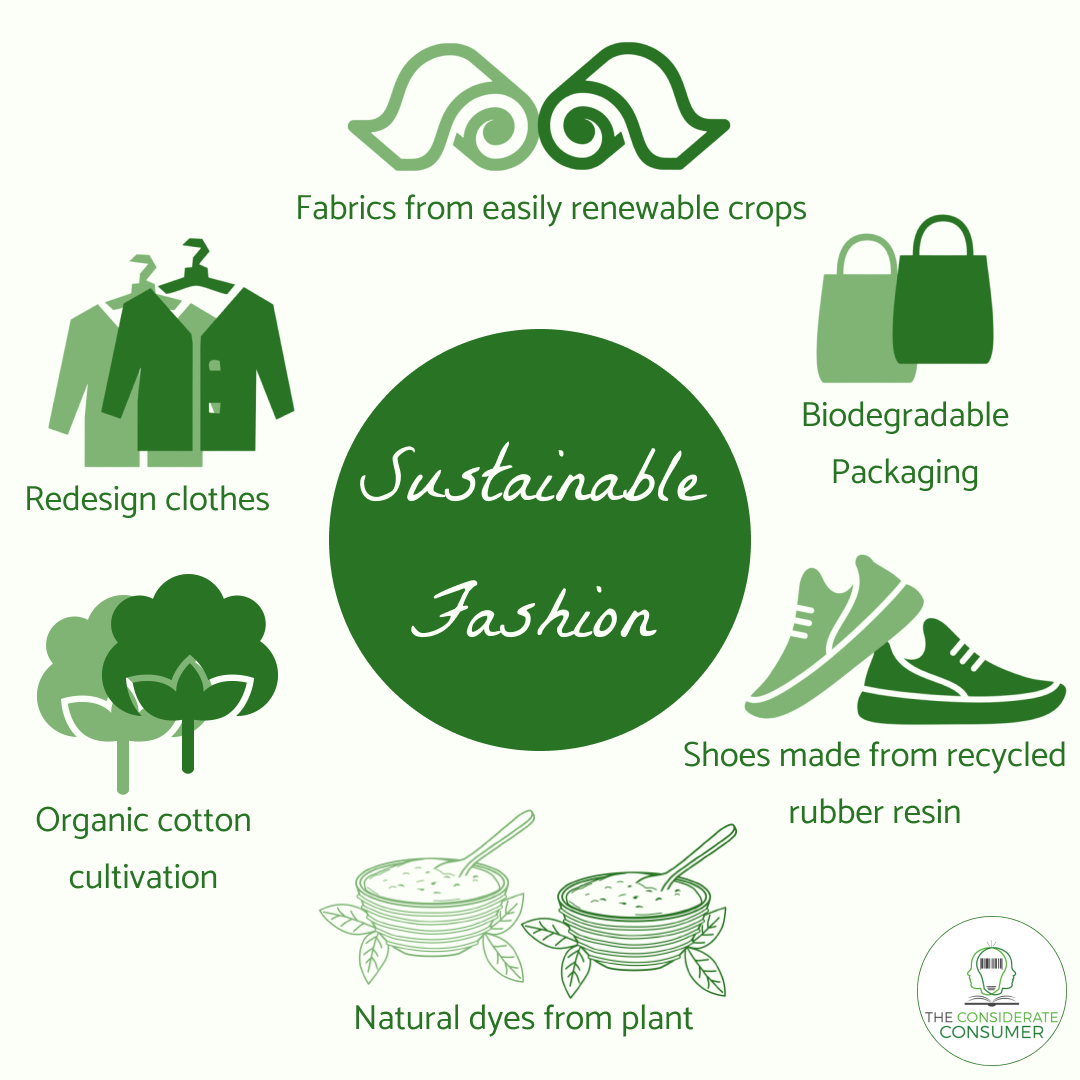Cape Town Sustainable Fashion Week: Highlighting Eco-friendly Innovations
Cape Town Sustainable Fashion Week: Highlighting Eco-friendly Innovations
Blog Article
Remain Ahead of the Curve by Exploring Innovative Fashion Trends
In an industry as vibrant as style, remaining in advance entails even more than just complying with current trends-- it requires an expedition of advancement. The convergence of modern technology and style advertises a new era of customer involvement.

Welcoming Smart Textiles
In recent times, the apparel industry has seen a transformative shift with the combination of smart textiles, an advanced development that blends technology with material. This evolution stands for not only a blend of appearances and capability however also a considerable jump towards sustainability and personalization in vogue. Smart textiles, likewise referred to as e-textiles, installed sophisticated electronics such as sensing units and conductive threads within the material, making it possible for garments to engage with the setting or the user.
These fabrics are made to monitor physiological parameters, such as heart price or body temperature level, offering real-time health and wellness analytics. Beyond health and wellness applications, smart textiles are also being made use of for flexible garments, which can transform color or pattern in action to environmental stimulations, therefore using a dynamic style experience.
Moreover, the growth of energy-harvesting fabrics that produce power from movement or sunshine is leading the method for self-sufficient wearable technology. This innovation is interesting eco mindful consumers and designers intending to minimize the ecological impact of style. As r & d in this area development, wise textiles are expected to come to be significantly widespread, improving the landscape of modern-day style with their multifunctional abilities.
The Rise of 3D Printing
Revolutionizing the manufacturing landscape, 3D printing has actually become a game-changer in the fashion business. This cutting-edge modern technology has enabled designers to push the boundaries of imagination, producing detailed and customized garments that were formerly inconceivable. By leveraging electronic style and additive production, 3D printing helps with the production of complicated geometries and patterns, permitting designers to experiment with brand-new textures and frameworks.
A noteworthy benefit of 3D printing in vogue is its capacity to create on-demand, minimizing waste and minimizing inventory demands. This efficiency not just optimizes manufacturing processes however also permits for rapid prototyping, making it possible for designers to bring their visions to life in a shorter duration. In addition, 3D printing sustains personalization to a level unmatched by traditional methods, providing unique layouts and customized fits customized to private consumer preferences.
The surge of 3D printing has also equalized fashion, making it easily accessible to emerging designers who can now fabricate high-grade pieces without considerable monetary investment in conventional manufacturing infrastructure. As innovation remains to advancement, the fashion business is positioned to harness the full capacity of 3D printing, discovering brand-new products and methods that will certainly redefine how fashion is conceived and created.
Sustainable Fashion Advancements
As the apparel industry comes to grips with journalism requirement for environmental obligation, sustainable fashion developments have emerged at the forefront of transformative adjustment. The expanding recognition of eco-friendly influence has actually sustained a shift towards more eco-conscious methods and materials. Designers and brands are currently focusing on sustainability, incorporating methods that minimize waste and reduce carbon footprints.
One significant growth is the surge of round style, which emphasizes recycling and upcycling to extend the lifecycle of garments. This strategy not only lowers waste however likewise encourages customers to adopt an extra conscious approach to apparel usage. Additionally, using lasting products, such as organic cotton, hemp, and recycled polyester, has actually obtained traction. These products need less water and power throughout production, substantially lessening ecological effect.
An additional innovation hinges on the adoption of visit the site innovative dyeing strategies that use waterless procedures or all-natural dyes, thereby reducing the huge amounts of water and chemicals typically made use of in textile dyeing. Furthermore, improvements in biotechnology have caused the production of lab-grown leather and textiles, providing cruelty-free and environmentally pleasant options to conventional products. Via these introducing efforts, other the apparel industry is making significant strides in the direction of a more sustainable future.

Tech-Integrated Apparel
Tech-integrated apparel stands for a cutting-edge blend of fashion and technology, reshaping just how individuals communicate with their clothing. This innovative domain name is marked by the inclusion of smart fabrics and embedded digital parts, improving both performance and aesthetic allure. From health and fitness trackers embedded in sportswear to warmed coats managed through mobile phone apps, tech-integrated garments uses customers unmatched benefit and adaptability.
Pioneering brands are driving this pattern, concentrating on creating garments that reply to environmental stimuli or individual commands. As an example, some garments can change color or pattern in response to temperature shifts, while others include biometric sensors to monitor health metrics like heart rate or anxiety degrees. The smooth assimilation of innovation into textiles also extends to ecological sustainability, with initiatives to establish self-cleaning materials or garments that adjust to climate condition, hence lessening the requirement for several layers.
Moreover, the advent of wearable modern technology is not simply limited to clothing yet expands to accessories like watches and eyewear, more widening the range of tech-integrated fashion. As the sector remains to innovate, the possibility for modification and customization in clothing grows, offering customers distinct, tech-enhanced fashion experiences that satisfy their specific requirements and preferences.
Future of Virtual Style
In current years, the future of digital fashion has actually arised as a transformative force within the market, leveraging improvements in digital modern technology to redefine exactly how style is produced, experienced, and consumed. By incorporating augmented truth (AR), virtual fact (VR), and 3D layout devices, designers can currently craft interactive and immersive experiences that transcend traditional style borders. Online fashion allows for the production of garments that exist only in electronic settings, providing limitless opportunities for advancement without the limitations of physical manufacturing.
This digital change not only offers chances for creative expression however additionally addresses sustainability worries inherent in typical style techniques. Cape Town Sustainable Fashion. By eliminating the find more demand for physical resources, online fashion lowers waste and reduces carbon impacts. Additionally, the surge of virtual fashion straightens with the increasing customer need for tailored and distinct experiences, as digital garments can be customized and customized to specific preferences effortlessly

Verdict
The fashion sector's future lies in the integration of innovative innovations and sustainable practices - Cape Town Sustainable Fashion. Smart fabrics and tech-integrated garments are improving functionality, while 3D printing supplies chances for customization and waste decrease. Sustainable style, with circular approaches and eco-friendly products, demonstrates a dedication to environmental stewardship. In addition, online fashion is poised to redefine consumer communications. Adjusting to these patterns is essential for brand names seeking to continue to be relevant and affordable in this swiftly evolving landscape.
In current years, the style industry has witnessed a transformative shift with the assimilation of smart fabrics, an advanced innovation that blends modern technology with fabric.As the style industry grapples with the pushing demand for environmental obligation, sustainable style innovations have arised at the forefront of transformative modification.In current years, the future of digital fashion has arised as a transformative force within the sector, leveraging advancements in electronic modern technology to redefine how style is created, experienced, and consumed. The increase of digital fashion straightens with the boosting customer demand for unique and personalized experiences, as online garments can be customized and customized to private choices with ease.
The fashion market's future lies in the assimilation of cutting-edge modern technologies and sustainable methods.
Report this page